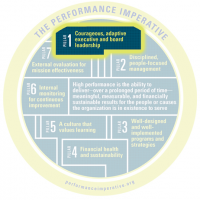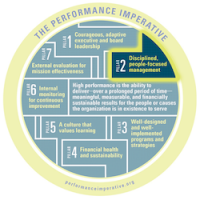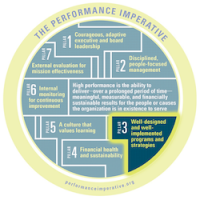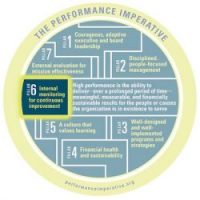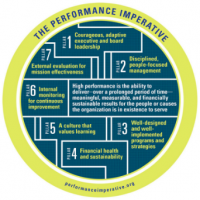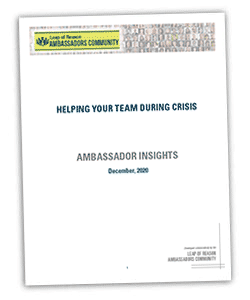Crisis was my life for 22 years.
I worked for a domestic violence and child abuse organization for those years and served as its CEO for almost ten of them. Operating a 24-hour helpline and a safe house for victims of abuse who have been beaten, threatened, and fearful for their lives is all about managing life and death issues. I learned how to manage crisis – and as a CEO, I needed to help my colleagues do the same.
These days, all leaders are managing crises in the midst of a pandemic, economic downturn, and civil unrest. New operational methods previously seen as impossible are now the norm (e.g., virtual therapy, conferences, schooling). So how do you help keep your staff motivated, provide quality services, and boost their morale while they’re managing their own stress of social distancing, online learning for their kids, and more?
Here are a few things I’ve learned.
Be present.
When so many team members are working remotely, it’s even more important to be intentional about check-ins so your team knows you’re thinking about them and have their backs. Regularly connecting with one another can also help foster inclusion and belonging during a time when individuals may feel disconnected from their team and their work. Recognize, too, the value of creating a safe space for your team to come together to process the pandemic’s unsettling uncertainties. That was true at the beginning months of the pandemic. Be present now as well. With public health officials urging people to stay in place during the upcoming holiday season, your team may find comfort in listening and sharing added support for each other, so all know they aren’t alone.
We can also be present by processing crisis together. National Council of Nonprofits CEO Tim Delaney describes what he witnessed when three different nonprofits had events planned within days of 9/11, the Baltimore uprising, and the Charleston church massacre: “With fear and uncertainty so high, many people counseled nonprofits to take the easy route and reschedule events. I watched the leaders choose a different path, leaning into the unknown and altering the events to create a safe space for attendees to speak, listen, question, share, cry, and process the unimaginable. Few left those events believing they understood the why or what of the tragedies, but everyone left reassured that they were not alone.” Allowing time for individuals to process a crisis can be healing.
Be honest yet calm.
Acknowledging that times are tough gives voice to the challenges that everyone is experiencing, even while individual experiences may be different. Your calm conveys you’re steering the ship, developing strategies, and making necessary course corrections. Share what you know honestly and often. If you’re not communicating regularly, team members usually “awfulize” by filling in the blanks with something that’s often far worse than reality.
This Los Angeles Times article “Staying calm under pressure tells a lot about a leader” points to the need for leaders to regulate their emotions and offers tips on how they can do that. I particularly like this quotation: “Most of us want a leader with passion and energy to make things happen; but we also want to know that when a crisis comes along … our leader will take decisive action in a calm and professional manner.”
Listen and respond.
Every day of my tenure at the domestic violence and child abuse organization, I felt that I couldn’t add one more thing to my plate. One day a staff member called me out saying, “Stop. You’re moving too fast to even listen to what we [the team] are saying. You need to slow down.” I considered myself a good listener, so that comment hit hard. I realized she was right. Some days, I just ran on adrenaline and found it difficult to stop. I needed to become more mindful of how important it is to stop, take a breath, and listen to the person in front of me. Sounds simple. But it takes being intentional.
Brad Philips, President & CEO of Institute of Evidence-based Change, shared Caring Campus Guide 2 and the accompanying webinar, which highlight the importance of listening and looping back with a response. It also offers six behavioral commitments for leadership and supervisors. Brad recognizes that “while the work is for educators, there are a number of crossover points that could be useful for human service organizations who are thinking about ways to support staff.”
Say thank you.
It’s important now more than ever to let the team know you appreciate them, their commitment, and their perseverance. I try to be as specific as possible, since most find those words more meaningful than a generic one-size-fits-all message.
During this crisis, many leaders are finding ways to replace their in-person gatherings. Dave Coplan, Executive Director of Human Services Center Corporation, said, “One very small action we are taking is replacing our annual June staff picnic with a staff appreciation lunch via Zoom, and we are reimbursing everyone up to $20 for purchasing their lunch take out or delivery.” Dave turned a regular outing into a virtual one and focused on showing his appreciation.
Share resources.
Even though people feel spent and overwhelmed during a crisis, they’re also searching for answers about how to survive both personally and professionally. The Leap Ambassadors Community provides COVID-19 resources, including how to live in a pandemic bubble, the importance of creating connections, working at home with kids, staying productive at work, and inclusion resources. If you find an article valuable, chances are others may too, so sharing can help your team pick up helpful tips.
Look for light moments.
Domestic violence and child abuse work is tough, and I was always amazed at how well team members maintained their sense of humor to cope and relieve stress. I often use humor or fun activities in meetings and encourage you to do that as well. A little lightheartedness goes a long way. The Leap support team does Friday Virtual Happy Hours as a way to take a breather and reconnect. Sessions are entirely optional so everyone can do what’s best for him or herself.
Michael Thatcher, President & CEO of Charity Navigator, said his team does weekly “Kudos meetings.” These informal sessions include an award (virtual now) passed from one employee to another, a weekly description of the “best charity in the world,” notes on the best social post of the week, and a pop question (e.g., “What are you currently reading?”). A Slack channel that includes cute baby pictures and family time posts is another way to share light moments.
Take care of yourself.
Remind team members to tend to their own needs so they can tend to others. When I became CEO, I did away with day-long retreats focused on creating goals and objectives and gave my staff self-care days instead. These self-care days included many different options over the years, including meditation, yoga, art, music, fun teambuilding, facials, and healthy food.
In “Black Women Leaders Lean Into Resilience,” author Ayoka Wiles says, “Black women who lead organizations in marginalized communities demonstrate the ability to recover quickly from difficulties. This ability is even more important during a crisis—the ability to shift, as well as care for themselves, allows them to better support the communities that they serve and to heal and overcome the emotional, financial, and mental traumas of a pandemic.” She’s right. Taking care of yourself can build resiliency.
Self-care was one of my struggles. As a leader, I tried to model healthy behaviors but knew this was one of my shortcomings. I had to pick myself up and refocus on self-care many times.
Give yourself and your team grace.
Many of us are navigating uncharted waters and will make mistakes in managing our organizations and teams. As a perfectionist, I put a lot of pressure on myself, which actually interferes with my ability to be creative and innovative. But I remind myself that “progress is measurable, perfection is unattainable.” We’ll all stumble as part of our learning about how to manage ourselves and our teams during these difficult times. Grace acknowledges this and allows us to forgive ourselves for our mistakes.
Erika Van Buren, Vice President of Evaluation, Learning & Strategic Impact at First Place for Youth, said, “The concepts from The Art of Allowing have been a philosophy or mantra that I have used to remind myself and my teams about the active ingredients of grace, which I believe first starts with allowing and accepting. With COVID-19, what I’ve seen amongst myself and my colleagues is an effort to do more (virtually) or be more as a mechanism for controlling the uncontrollable, when we should be doing the exact opposite.”
Keep learning.
Right now, we’re all in major learning mode about how to help our teams. And the learning will continue―with each new crisis heading our way. Keep your intentionality front and center as a way to help your team.

